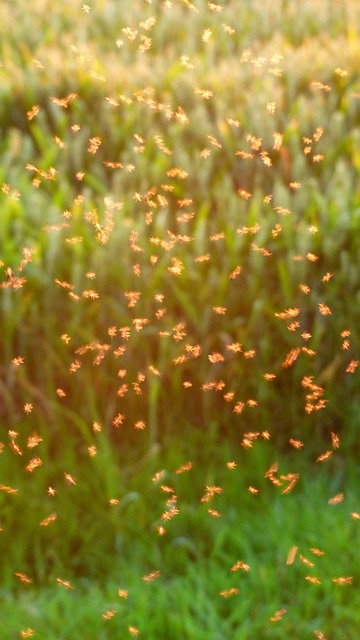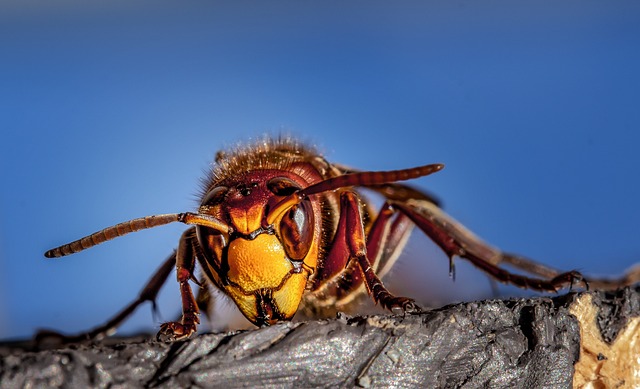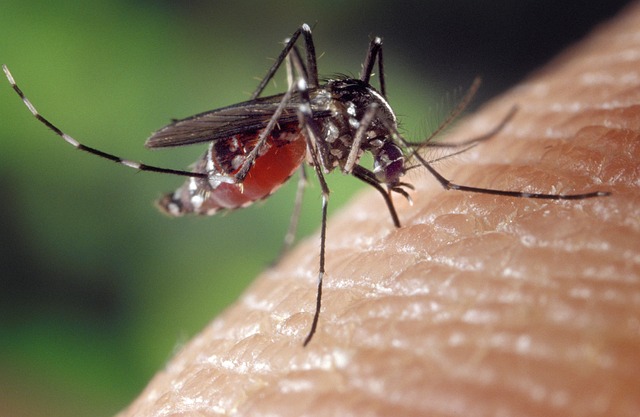Mosquitoes pose significant health risks as disease vectors, active mainly during dawn and dusk. They breed rapidly in stagnant water and are attracted to carbon dioxide, heat, and chemicals in human sweat. Traditional chemical spraying methods have short-term success but present environmental risks and insecticide resistance. Natural repellents like citronella, lavender, peppermint, and eucalyptus offer safer, affordable alternatives. DIY mosquito traps and professional services provide effective solutions for severe problems. Community initiatives combining natural barriers and water body maintenance significantly reduce mosquito populations. Long-term strategies involve eliminating standing water sources, adopting integrated pest management (IPM), landscaping with mosquito-repelling plants, and proper yard care to create sustainable protection.
In the quest for a mosquito-free environment, understanding these pesky creatures and their behavior is the first step. Mosquitoes pose more than just an annoyance; they are vectors for diseases like Zika and dengue. This article explores affordable mosquito control methods, from traditional techniques to innovative, natural solutions. We delve into DIY traps, the effectiveness of repellents, community initiatives, and professional services, offering a comprehensive guide to managing these insects without breaking the bank.
Understanding Mosquitoes: Their Behavior and Impact

Mosquitoes are more than just a nuisance; they are vectors for various diseases that can pose significant health risks to humans and animals. Understanding their behavior is crucial in implementing effective mosquito control strategies. These insects are most active during dawn and dusk, when they feed on blood to fuel their reproductive cycles. They are attracted to carbon dioxide, heat, and certain chemicals present in human sweat, making outdoor activities especially vulnerable to their presence.
The impact of mosquitoes goes beyond bite-related discomfort. Various mosquito species transmit diseases like malaria, dengue fever, Zika virus, and West Nile virus, which can lead to severe illness and even death. Their ability to breed rapidly in stagnant water bodies makes mosquito control a pressing matter for communities worldwide. Implementing preventive measures and adopting integrated pest management techniques are key to reducing their population and mitigating the risks associated with these tiny but potent vectors.
Traditional Mosquito Control Methods: Pros and Cons

Traditional Mosquito Control methods, such as spraying chemicals and using insecticides, have been around for decades. These techniques are often effective in reducing mosquito populations, especially in the short term. However, they come with significant drawbacks. One major concern is their potential impact on the environment, including water bodies and non-target species like beneficial insects and wildlife. Additionally, the development of insecticide resistance in mosquito populations poses a long-term challenge, rendering these methods less effective over time.
Furthermore, traditional Mosquito Control approaches often require frequent applications, which can be costly and may not be accessible to all communities, especially those with limited resources. These methods also fail to address the underlying ecological factors that contribute to mosquito breeding, like stagnant water sources and poor waste management.
Affordable Alternatives for Mosquito Management

In the quest for effective mosquito control, it’s not always about expensive solutions. There are several affordable alternatives that can significantly reduce mosquito populations and provide relief from their bites. One such method is utilizing natural repellents like citronella candles or essential oils. These products offer a cost-effective and eco-friendly way to create a barrier against mosquitoes in outdoor spaces, adding a pleasant aroma to your environment.
Another practical approach involves structural changes to your surroundings. Simple actions like ensuring windows and doors are tightly screened can prevent mosquitoes from entering your home. Additionally, eliminating standing water around your property is crucial, as mosquitoes breed in stagnant water. Regularly emptying flowerpots, buckets, or any containers that collect water can significantly curb mosquito breeding grounds, making your environment less attractive to these pests.
Natural Repellents and Their Effectiveness

Natural repellents have gained popularity as an effective and affordable mosquito control method. Many essential oils, plants, and even household items possess properties that can deter mosquitoes from biting. For instance, citronella, known for its strong scent, has been used for centuries to ward off these pests. Similarly, lavender, peppermint, and eucalyptus oils are natural alternatives that not only repel mosquitoes but also offer aromatic benefits.
These natural methods can be highly effective in reducing mosquito-related inconveniences. They provide an eco-friendly and non-toxic solution, especially for homeowners seeking to minimize the use of chemical-laden commercial products. By incorporating these repellents into daily routines, such as planting citronella or lavender in gardens or using diffusers with essential oils indoors, individuals can create a mosquito-free environment without breaking the bank.
DIY Mosquito Traps: Cost-Effective Solutions

DIY mosquito traps offer an affordable and eco-friendly approach to mosquito control. These simple, homemade solutions can be created using common household items like old bottles or containers, water, sugar, and other easily accessible ingredients. By combining these elements, you create a natural bait that attracts mosquitoes, allowing you to reduce their population in your outdoor spaces without breaking the bank.
With a bit of creativity, you can design multiple traps at minimal cost, making them an attractive option for homeowners looking for effective yet budget-friendly mosquito control methods. This approach not only helps manage annoying mosquito bites but also contributes to a safer and more enjoyable outdoor environment.
Professional Services: When to Consider Expert Help

Many homeowners opt for do-it-yourself methods to combat mosquitoes, and there are plenty of affordable options available. However, for more severe mosquito problems or areas with high pest resistance, professional services might be necessary. Mosquito control experts utilize specialized equipment and treatments that go beyond conventional means. They have access to powerful yet environmentally friendly chemicals and tools designed specifically for mosquito control, ensuring a more effective and long-lasting solution.
Calling in the pros is especially beneficial for large properties, frequent gatherings, or areas with water sources that breed mosquitoes. These professionals can assess your unique situation, identify breeding grounds, and provide tailored solutions. They offer peace of mind, knowing your space is being treated safely and efficiently, preventing mosquito-borne diseases and ensuring a more enjoyable outdoor experience.
Community Initiatives for Mosquito Control

Community initiatives play a pivotal role in effective mosquito control, offering sustainable solutions beyond traditional methods. Local governments and residents can collaborate to implement diverse strategies, such as creating natural barriers by planting mosquito-repelling plants and maintaining water bodies free from stagnant water—a breeding ground for mosquitoes. Community-led efforts also include organizing awareness campaigns to educate folks on the importance of eliminating potential habitats and using preventive measures like insecticides and protective gear.
These collective actions not only reduce mosquito populations but also foster a sense of shared responsibility, enhancing the overall quality of life in affected areas. By integrating natural solutions with community engagement, these initiatives provide an affordable and eco-friendly approach to mosquito control, ensuring healthier and more livable environments for all.
Long-Term Strategies for a Mosquito-Free Environment

Creating a mosquito-free environment isn’t just about quick fixes; it’s about implementing long-term strategies for effective mosquito control. This involves understanding their breeding patterns and habitats. Mosquitoes breed in standing water, so eliminating potential sources like buckets, tires, or clogged gutters can significantly reduce their population. Regularly emptying containers that hold water and maintaining proper drainage are essential preventive measures.
Additionally, adopting an integrated pest management (IPM) approach combines various methods. This includes applying mosquito repellents, installing insect traps, and promoting natural predators like birds and fish. Landscaping with mosquito-repelling plants and ensuring proper yard maintenance can also deter these pests naturally. Such holistic strategies not only provide short-term relief but contribute to a more sustainable, mosquito-free environment over time.
